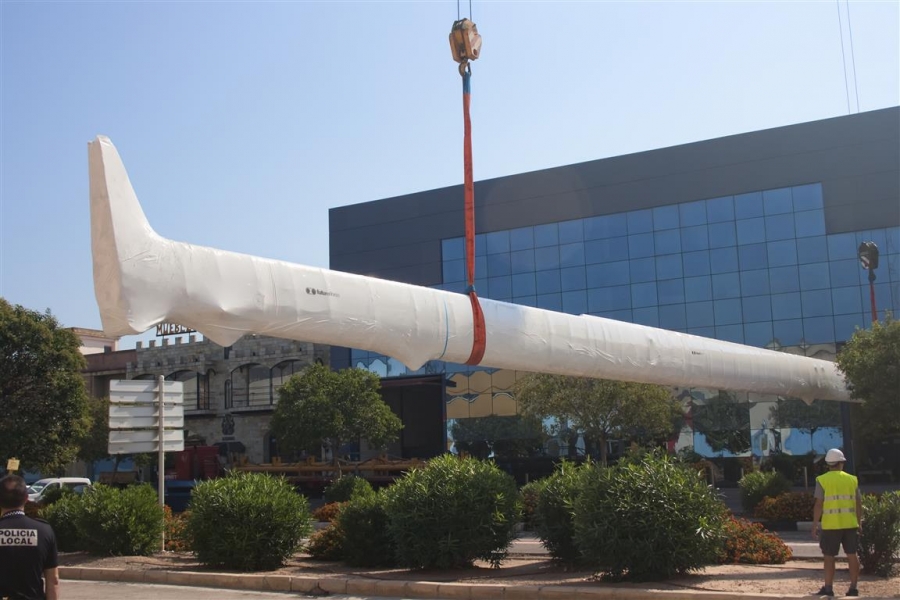Future Fibres completes work on 76 metre mast for Perini Navi’s latest superyacht.
Following almost 18 months in design, development and construction, Future Fibres this week shipped its latest carbon fibre mast to Perini Navi’s La Spezia yard in Italy. Destined for the 60 metre sloop C.2218, as she is currently known, the 75.8 metre mast was built and shipped in two sections and will be joined over the next six weeks in the Perini yard. The accompanying Future Fibres furling boom and bespoke composite rigging package will be shipped later this month, with dressing and stepping of the rig due to take place in November.
The brief for project C.2218 focused on achieving the highest levels of performance and meant Future Fibres was able to utilise its extensive Grand Prix experience, incorporating many of the developments identified through its racing clients. However, with Future Fibres’ trade mark, milled aluminium, tooling they have managed to produce a tube with a perfect exterior surface and a flawless ‘Clearcote’, gloss carbon finish. The result not only looks impressive but with zero filler – which can add up to 3 per cent to the weight of a mast – further reduces unnecessary weight to deliver a mast with both performance and style.
Utilising Future Fibres’ 40 metre dedicated clean-room/oven meant the 23.4 metre furling boom could be manufactured using pre-preg carbon, rather than standard wet-laminate, improving structural performance and again, reducing weight. The boom has been through a detailed design and development process with special attention on the complex systems required for sail furling and handling. The result is a new mandrel furling and locking system which has gone through extensive testing and prototyping.
Tim Meldrum, Chief Designer for the project commented: “Bringing the innovations we’ve developed for the race market to a superyacht of this size certainly represented a challenge. We invested a tremendous amount of time into the design and management of the project to ensure we understood every variable down to the smallest detail and we are very pleased with the outcome. Once launched, C.2218 will have a hugely powerful Doyle Sails sail plan and a complete Future Fibres rigging package. The lateral rigging is solid carbon with a mix of carbon, PBO and Kevlar for the fore and aft cables. The enormous code zero is using the top-down furling technique for improved system safety and the cable required is the longest and most powerful furling cable we have ever produced. We even had to extend our winding bed through the end wall of the factory to build it! That alone is exciting but it’s just a tiny part of what should be an incredible boat and a real challenger on the superyacht race circuit for years to come.”



